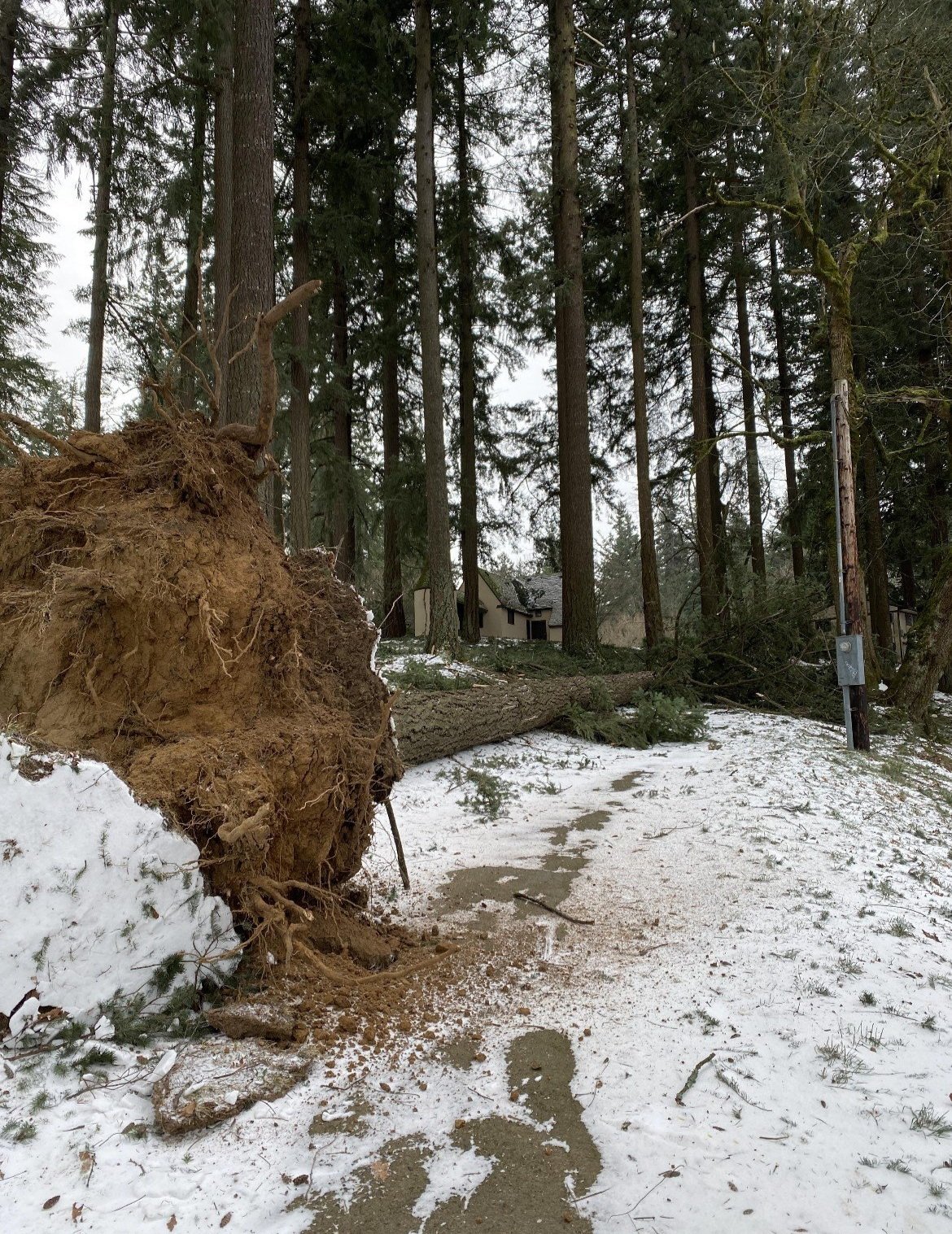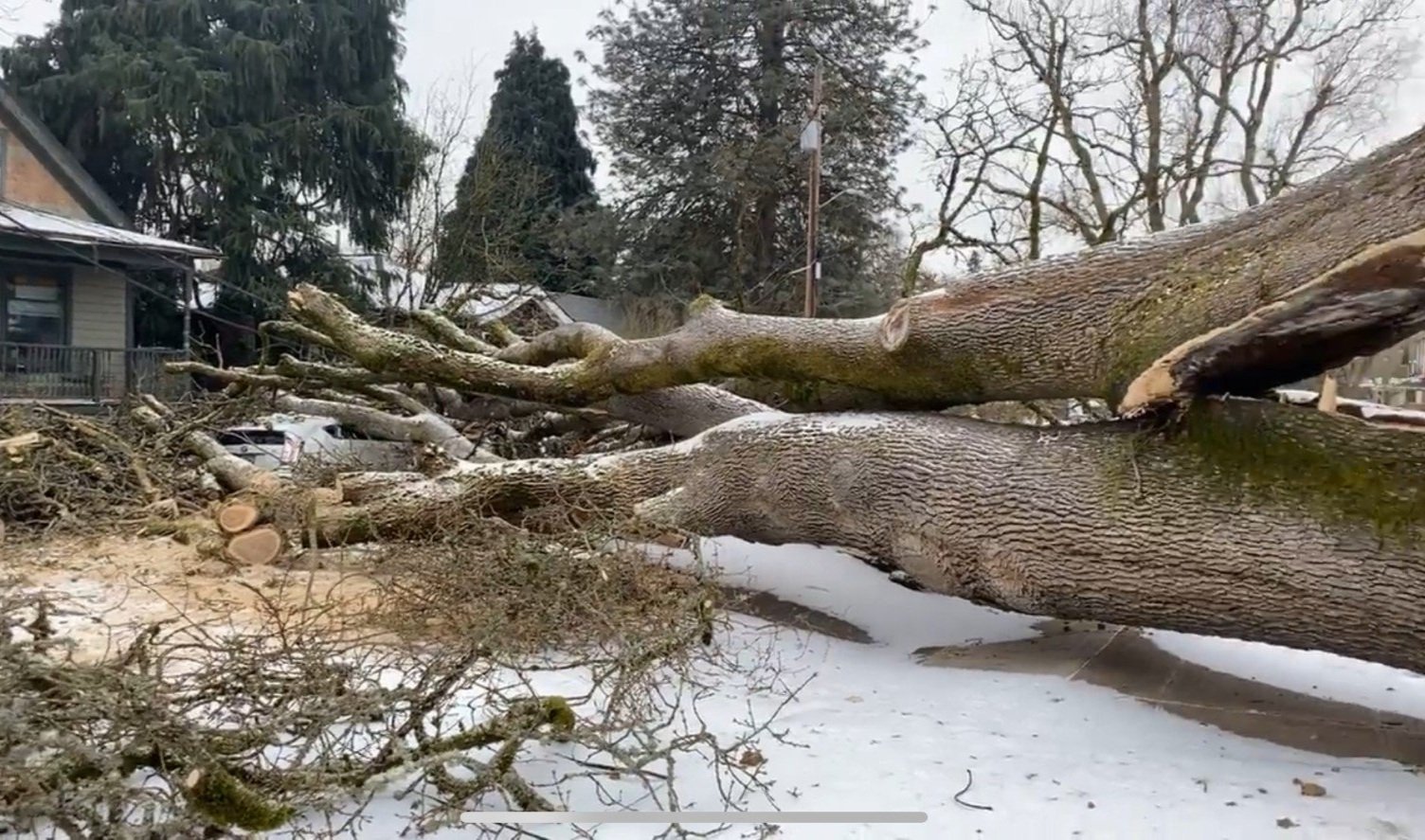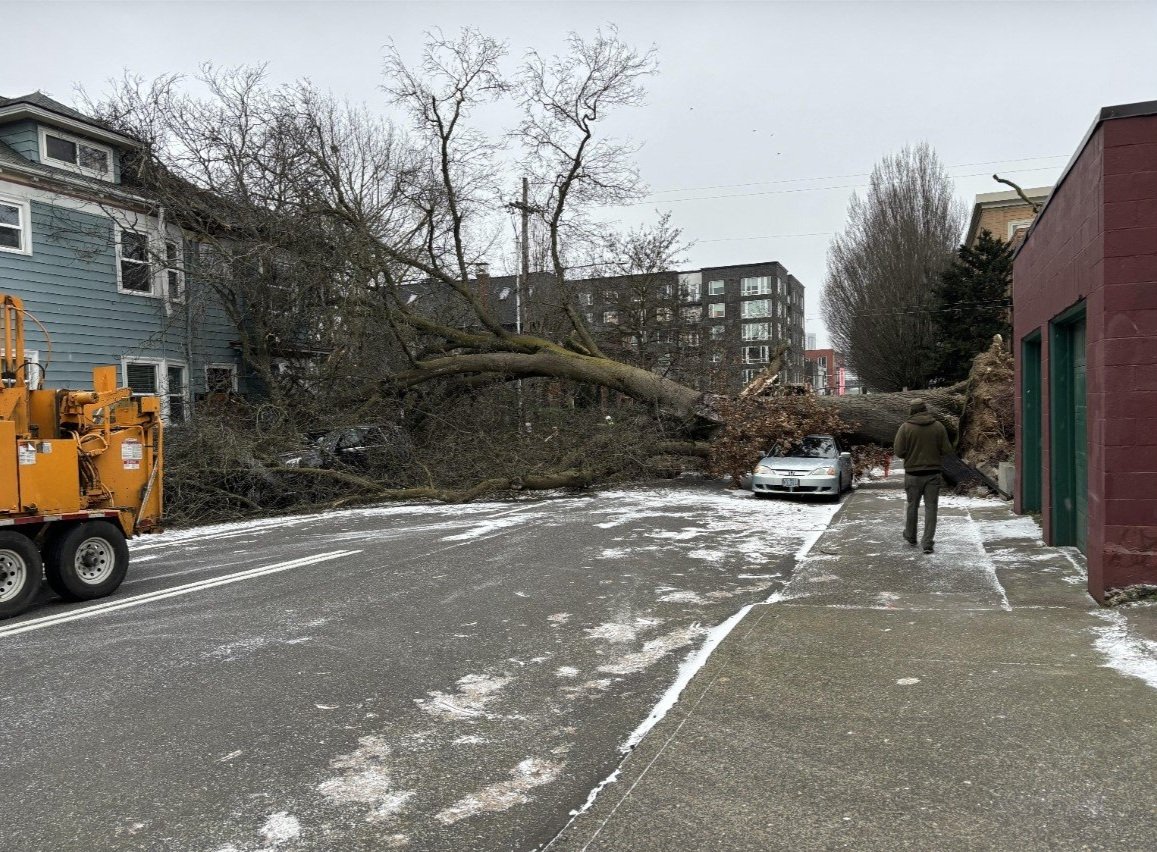Portland’s January Ice Storm, ‘TreePhobia’ and the Need for Clear-Headed Tree Risk Assessments
In January 2024, Portland experienced some of the coldest temperatures in the last 50 years. We also had very strong wind gusts with freezing rain and snow. As a result, many large trees failed in pockets of the City. When big trees fail, they at best make a booming sound and at worst cause serious damage to property or even kill people. Media reports following the storm took the opportunity to fill readers with fear. I call this phenomenon ‘TreePhobia.’ People’s emotional response to the very real damage should not be discounted, but it also important to understand the true risk of trees in urban area.
In the days after the storm, I received many calls from property owners asking for tree risk assessments. At one property, a tree contractor had been onsite to remove a downed Douglas-fir. He told the resident, a new mother, that a standing Oregon white oak across the lot was an imminent hazard. After providing a $12,000 quote to remove the tree, he then told her she should not let her baby sleep in the adjacent room. I came out to the site following a Sunday night call, finding that the beautiful 35 inch oak was in good condition and was a low overall risk needing only a bit of minor pruning.
Rather than catering and profiting off of fear, the regimented process of tree risk assessment helps us inject as much subjectivity into trees’ likelihood of failure and their ability to cause damage as possible. We need to step back now that the storm is over and the downed trees have been cleared. Most of trees in the Portland area did not fail but instead, remained undamaged from the storm. As consulting arborists, we do not advocate for a single outcome. Instead, we do our best to make observations and provide clients with a better understanding of their trees’ risks. We cannot always dispel people’s TreePhobia. But it is also our role to be the voice of reason where chaos from the news and social media often prevail.



